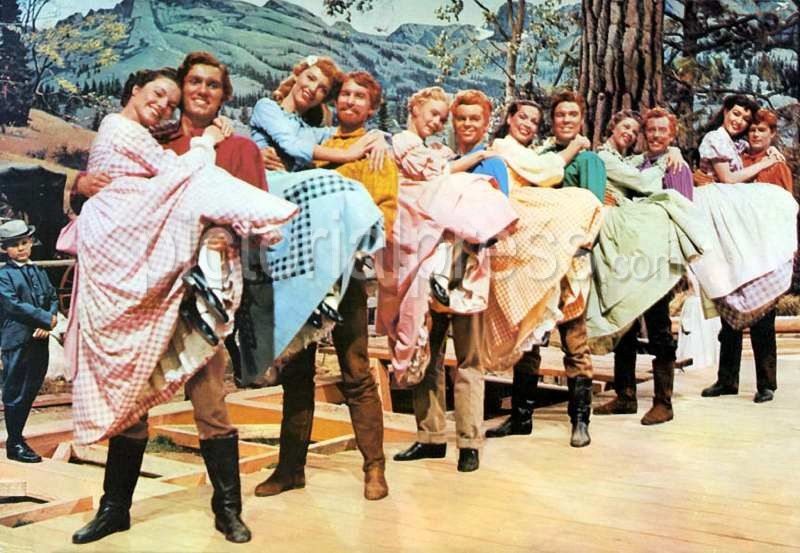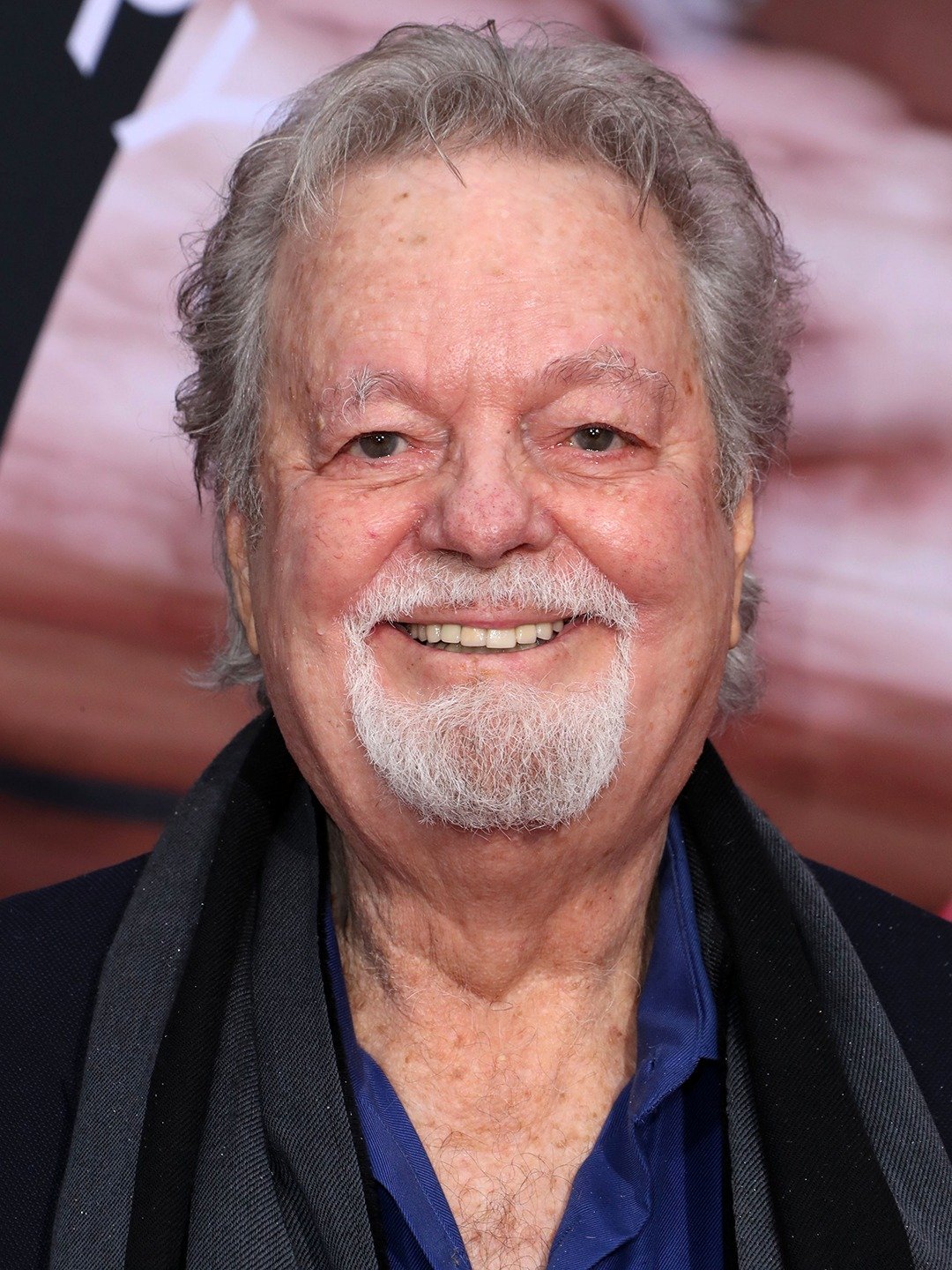Russ Tamblyn shovel dance remains one of the most iconic performances in the history of Hollywood, captivating audiences across generations. This unique dance sequence from the classic film "Seven Brides for Seven Brothers" has left a lasting impression on both cinema and dance enthusiasts. The performance not only showcased Tamblyn's extraordinary talent but also elevated the art of choreography in musical films.
Beyond its visual appeal, the shovel dance holds significant cultural importance, symbolizing the evolution of dance in cinema and the impact of choreography on storytelling. As we explore this legendary act, we'll uncover the history, techniques, and cultural significance behind it. Join us as we delve into the life and career of Russ Tamblyn, the man who brought this unforgettable performance to life.
This article will take you on a journey through the world of Russ Tamblyn's shovel dance, exploring its origins, technical intricacies, and lasting legacy. Whether you're a fan of classic Hollywood cinema or simply appreciate the art of dance, this piece promises to enrich your understanding of one of the most celebrated performances in film history.
Read also:Clinica Hispana Rubymed Your Premier Destination For Quality Healthcare
Table of Contents
- Biography of Russ Tamblyn
- The Origin of the Shovel Dance
- Choreography Techniques
- Cultural Impact
- Russ Tamblyn's Film Career
- Legacy of the Shovel Dance
- The Dance in Modern Context
- Influence on Dance in Cinema
- Techniques Used
- Audience Reception
Biography of Russ Tamblyn
Russ Tamblyn's Early Life and Career
Russ Tamblyn, born on November 17, 1938, in Los Angeles, California, was an American dancer, actor, and choreographer renowned for his dynamic performances on screen. His career in entertainment began at a young age, with early influences from his parents, both of whom were involved in the performing arts. Tamblyn's natural talent and dedication quickly propelled him to the forefront of Hollywood's musical scene.
Below is a summary of Russ Tamblyn's personal and professional life:
| Full Name | Russell Tamblyn |
|---|---|
| Birth Date | November 17, 1938 |
| Birthplace | Los Angeles, California, USA |
| Profession | Actor, Dancer, Choreographer |
| Famous For | Shovel Dance in "Seven Brides for Seven Brothers" |
The Origin of the Shovel Dance
The russ tamblyn shovel dance made its debut in the 1954 film "Seven Brides for Seven Brothers," directed by Stanley Donen. The dance sequence, choreographed by Michael Kidd, stands out as one of the most innovative and daring performances of its time. It combined everyday tools like shovels and pitchforks with intricate dance movements, creating a unique blend of physical labor and artistic expression.
Behind the Scenes
Choreographing the shovel dance required immense creativity and technical skill. Michael Kidd envisioned a sequence that would reflect the rugged, outdoor lifestyle of the film's characters while maintaining the elegance of dance. Tamblyn, with his athletic build and exceptional talent, was the perfect choice to execute this challenging routine.
Choreography Techniques
The shovel dance incorporated a variety of techniques that pushed the boundaries of traditional choreography. Below are some key elements that defined this iconic performance:
- Use of everyday tools as dance props
- Incorporation of acrobatic movements
- Syncopated rhythms and dynamic footwork
- Integration of group dynamics and individual flair
Cultural Impact
The russ tamblyn shovel dance had a profound impact on both the film industry and popular culture. It challenged conventional notions of what constituted "dance" and demonstrated the versatility of choreography in storytelling. The sequence inspired countless choreographers and dancers, paving the way for more innovative performances in cinema.
Read also:Allegro Senior Living Elevating The Standard Of Senior Care
Influence on Future Films
Films such as "West Side Story" and "Grease" drew inspiration from the shovel dance, incorporating similar themes of labor and community into their choreography. The dance's emphasis on authenticity and physicality resonated with audiences and set a new standard for musical performances in film.
Russ Tamblyn's Film Career
Throughout his career, Russ Tamblyn appeared in numerous films, showcasing his versatility as both an actor and dancer. Some of his notable works include:
- "West Side Story" (1961) - Playing the role of Riff
- "The Music Man" (1962) - Featuring his dancing talent
- "Pillow Talk" (1959) - Demonstrating his comedic skills
Contributions to Dance in Cinema
Tamblyn's work extended beyond acting, as he contributed significantly to the field of choreography. His ability to blend athleticism with artistry made him a sought-after collaborator in the film industry.
Legacy of the Shovel Dance
The legacy of the russ tamblyn shovel dance continues to inspire new generations of dancers and filmmakers. Its innovative approach to choreography and its celebration of everyday life have ensured its place in cinematic history. Tamblyn's performance remains a testament to the power of dance to transcend cultural and generational boundaries.
Modern Interpretations
In recent years, the shovel dance has been reimagined in various forms, from live performances to online tributes. These adaptations highlight the enduring appeal of Tamblyn's original work and its relevance in contemporary dance culture.
The Dance in Modern Context
As the world of dance evolves, the principles underlying the shovel dance continue to influence modern choreographers. The integration of everyday objects and movements into dance routines reflects a growing trend toward authenticity and relatability in performance art.
Technological Advancements
Advances in technology have enabled choreographers to explore new dimensions of dance, building upon the foundations laid by pioneers like Russ Tamblyn. Digital tools and virtual platforms now provide opportunities for dancers to reach global audiences, expanding the reach of their art.
Influence on Dance in Cinema
The influence of the shovel dance extends beyond its immediate context, shaping the way dance is portrayed in films today. Modern cinematic choreography often incorporates elements of storytelling and character development, echoing the techniques pioneered by Michael Kidd and Russ Tamblyn.
Challenges and Opportunities
While the film industry faces new challenges in adapting to changing audience preferences, the enduring popularity of dance sequences like the shovel dance underscores the timeless appeal of this art form. Filmmakers continue to seek innovative ways to incorporate dance into their narratives, drawing inspiration from classic performances.
Techniques Used
The success of the shovel dance can be attributed to the innovative techniques employed by its creators. These techniques included:
- Precision timing and synchronization
- Dynamic use of space and movement
- Integration of props into choreography
Training and Preparation
Tamblyn and his fellow performers underwent rigorous training to perfect the dance sequence. Their dedication to mastering the intricate choreography ensured the seamless execution of the routine on screen.
Audience Reception
Upon its release, the shovel dance was met with widespread acclaim from both critics and audiences. Its groundbreaking approach to choreography captivated viewers and solidified its place in film history. Decades later, the performance continues to resonate with audiences, attesting to its universal appeal.
Long-Term Impact
The lasting impact of the russ tamblyn shovel dance is evident in its continued relevance and influence on the world of dance. As new generations discover this iconic performance, they are inspired by its creativity, energy, and passion.
Conclusion
In conclusion, the russ tamblyn shovel dance stands as a testament to the power of dance to transcend boundaries and connect people across generations. Through its innovative choreography and dynamic performance, this iconic sequence has left an indelible mark on the history of cinema and dance. As we celebrate its legacy, we are reminded of the importance of creativity, dedication, and passion in the pursuit of artistic excellence.
We invite you to share your thoughts on this legendary performance in the comments below. Feel free to explore other articles on our site to discover more fascinating insights into the world of dance and cinema. Together, let's continue to celebrate the artistry and innovation that define the rich tapestry of entertainment history.
Sources:
- Stanley Donen's "Seven Brides for Seven Brothers" (1954)
- Michael Kidd's choreographic notes and interviews
- Russ Tamblyn's filmography and career milestones



